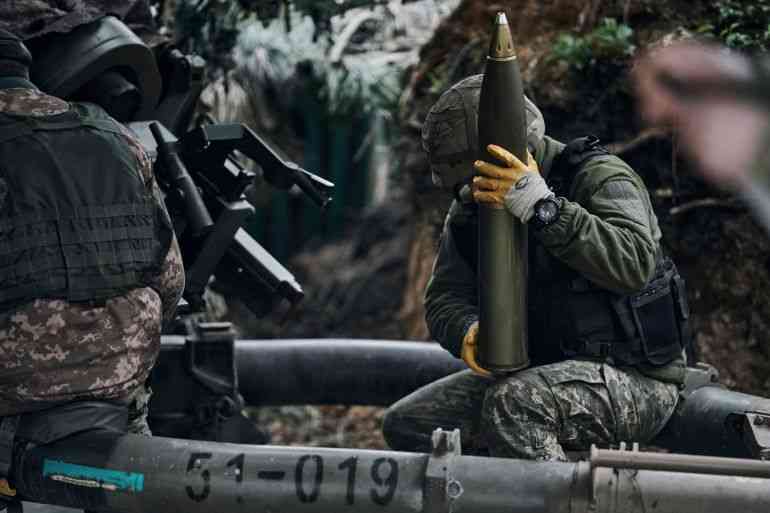
THE global economy was characterised by mixed indicators as the third quarter of 2023 came to an end.
Positively, the recession was delayed even though it still poses a threat.
Despite the economic turmoil brought on by the war in Ukraine, economies have been quite resilient, maybe because of alternate methods of international trade. But how long will they be sustainable?
However, inflation remains at uncomfortable levels largely because of shifting geopolitics and the need for a new market playbook amid calls for an alternative trading system and currencies.
The new wave of global economic change seems unstoppable, but it also needs to be rapidly restructured and settled to inspire global trading confidence.
With major backers of the conflict in Ukraine declaring exhaustion and that they are running low on supplies to help Ukraine defend itself in its conflict with Russia, it appears that the globe is at a tipping moment.
The defence secretary for the United Kingdom observed that Western military stocks were running low and urged the North Atlantic Treaty Organisation (NATO) members to dedicate at least 2% of their national economies to defending Ukraine. Top NATO military official, Rob Bauer, agreed and said that “the bottom of the barrel [of the ammunition stockpile] is now visible”.
It remains to be seen if a disruption in the supply chain or a lack of money is to blame for the ammunition shortage. However, it is evident that the biggest backers of Ukraine, primarily Europe and the United States (US), are becoming weary.
- Grace Mugabe’s first husband Goreraza dies
- ‘Inflation could shoot to 700% by April next year’
- Soldiers run amok in Chegutu
- New perspectives: Inflation control critical for economic growth
Keep Reading
After 18 months of war, it appears that there will be no victor as Russia continues its ruthless offensive, with Ukraine’s ability to fend off the former’s assault reliant on the help from NATO, Europe, and the US.
Leaders of the countries aiding Ukraine are also coming under fire from their citizens, who are asking why their taxes should be used to continue aiding Ukraine and what good their participation in the conflict is doing.
Since they have taken the brunt of the economic impacts of the war in Ukraine over the past 18 months, for them this is not just a political concern but also a practical one. Backing Ukraine is no longer just a political concern, but an existential one.
Since Russia invaded the country in February 2022, Ukraine has received the majority of American help abroad. However, while they strengthened their support for Ukraine, the US and other big economies have neglected other global objectives. What began as an ego conflict between the West and Russia has turned into a significant economic upheaval.
Global economic activity has been badly impacted by the war’s economic effects, which have also increased inflationary pressures and slowed the post-pandemic recovery. The war’s influence on volatile, high commodity and energy costs, which also spurred inflation in many regions of the world, made food shortages worse.
The persistent dangers to the energy security of Europe affect broader economies. No matter what happens, the battle has no winner. There is now an increasing number of voices asking for the cessation of the war in Ukraine or a reduction in military aid to that country.
Jeffrey Sachs, a well-known economist, who has urged the US government to forgo military backing in favour of diplomacy and negotiations, is one of these voices.
While there will be significant reputational costs associated with stopping the war, Sachs contends that since the US and its allies exacerbated the conflict, they must be willing to make concessions to put a stop to it.
On multiple fronts, people are urging an end to the conflict. The first is that it is an unnecessary conflict that is only supported by political egos. Second, it has had a negative impact on the domestic economies of those nations that have supported Ukraine.
Third, it has more widespread global effects that have driven millions of people into poverty. Fourth, no matter what happens, there won’t be a winner, but the harm done globally is significant.
Finally, continuing a conflict at a time when the West is rapidly losing influence and power around the world is just the wrong course of action. Instead, attention should be paid to minimising the effects of the growing multipolar world order.
Ukraine too has that responsibility because they are the primary bearer of the brunt of the war. By now they should be aware that war is the worst enemy of economic development as data shows that while the global economy has suffered immensely, Ukraine and its people have suffered the most. Its economy shrunk by 35% in 2022.
Even if the war were to end now, it would take many decades for Ukraine to recover, and the sooner the war ends, the earlier they can start rebuilding their country.
- Tapiwa Gomo is a development consultant based in Pretoria, South Africa. He writes here in his personal capacity.









